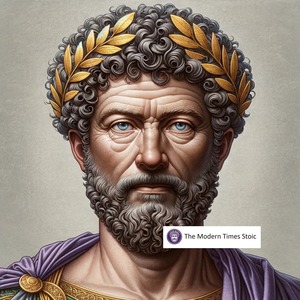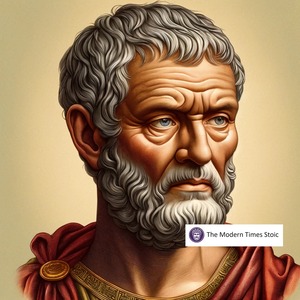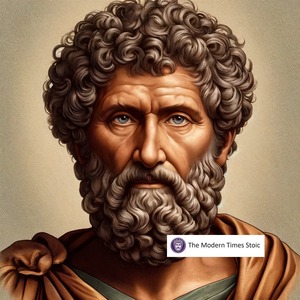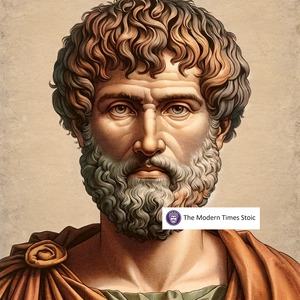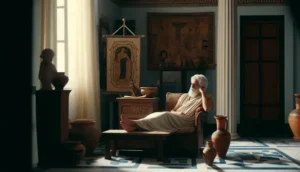In this ninth letter, Seneca explains what it means to be self-sufficient in the context of Stoicism vs other schools of philosophy (Pyrrhonism, Eclecticism, etc.) that existed during that time. All schools agree that a wise man is self-sufficient meaning he will be happy with himself alone but behaves differently when a part important to him is lost (such as friends, body parts, etc.). Other schools are insensible with the lost but the stoics feel the grief yet overcomes it. He prefers not to lose things dear to him but will complete be happy with whatever is left with him.” If he loses a hand through disease or war, or if some accident puts out one or both of his eyes, he will be satisfied with what is left, taking as much pleasure in his impaired and maimed body as he took when it was sound. But while he does not pine for these parts if they are missing, he prefers not to lose them” If you have been exposed to Stoicism you probably know that the absolute good to the stoics is virtues and anything outside that including what we define in today world as good (money, wealth and power, status) are only preferred by the stoics.
In his third letter, Seneca stressed the importance of selecting friends and giving full trust. This letter Seneca talked about seeking friendships for some gain. He calls it “fair-weather” friendships and should not be sought by a self-sufficient man. While humans naturally desire companionship he should be okay without it. Friends are under that umbrella which the Stoics called preferred indifferent because the ultimate source of happiness (the one that cannot be taken away) can be found within him.
"The wise man is sufficient unto himself for a happy existence."
Seneca Tweet This Quote
As Seneca puts it beautifully, “the wise man is sufficient unto himself for a happy existence, but not for mere existence. For he needs many helps towards mere existence; but for a happy existence he needs only a sound and upright soul”. It is this idea of self-sufficiency and low regard for externals that some people call the stoics inactive/loner/passive. That’s not true as Seneca is a Senator and Marcus Aurelius is an emperor so they are pretty much engaged in the public. The Stoics just want to remind us that happiness and strength can always be accessed within as compared to externals that are so fleeting in nature. “The Stoic also can carry his goods unimpaired through cities that have been burned to ashes; for he is self-sufficient. Such are the bounds which he sets to his own happiness.”
"The Stoic also can carry his goods unimpaired through cities that have been burned to ashes;for he is self-sufficient."
Seneca Tweet This Quote
***** Letters from a Stoic Key Takeaways is a collection of short key takeaways from the letters sent by Seneca to Lucilius. Read each letter’s key takeways here .
